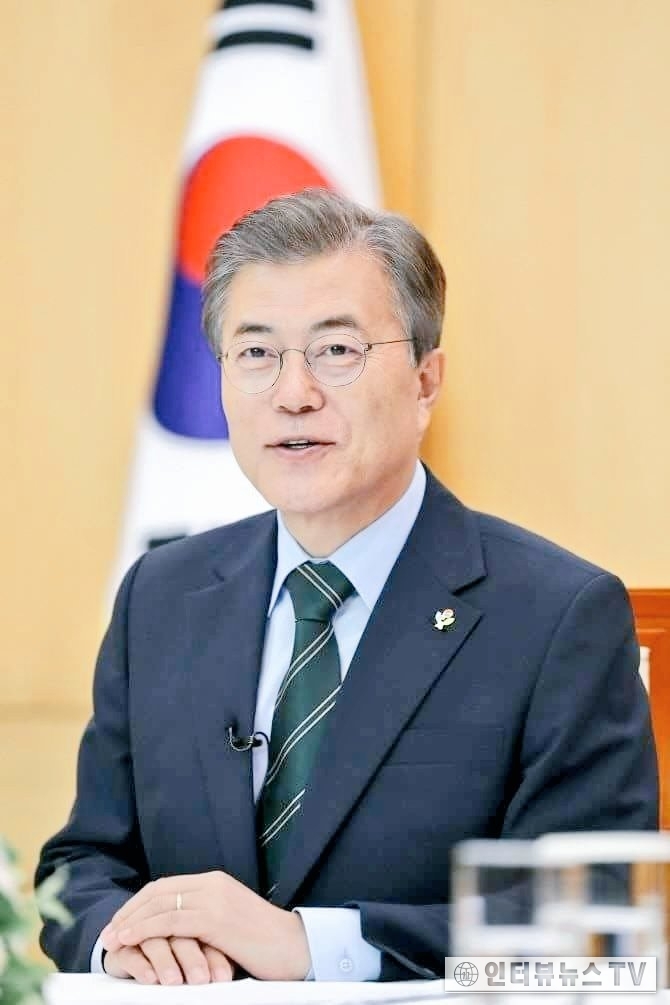
President Moon Jae-in of South Korea
Public opinion polling agency Realmeter announced on April 14 that President Moon Jae-in nominated "Minister of State Cheong Wa Dae's Secretary of State" as a candidate for the Minister of Justice.
In the midst of the opposition between the ruling and opposition parties about the nomination of the country, according to a survey conducted by OhmyNews, 49.1% of the nominations for the nomination of the country were `` good '' (32.7% very well, 16.4% well), '' Negative evaluation was '46 .7% (very wrong 34.4%, wrong 9.3%) ', which was 5.4% p higher in the margin of error (± 4.4% p). 'I don't know / no response' is 7.2%.
Along with the progressive, positive ratings in the Democratic Party support group, negative ratings in the Conservative Party and the Liberal Party Party support group, and there is a sharp confrontation among the camps, women have a lot of positive evaluations, and men have positive and negative evaluations. There was a difference between genders.
In particular, the affirmation was overwhelming majority in the Democratic, Justice, and Progressive groups, and in the Honam and Seoul metropolitan areas, the 3050 young generation, and the women in half. Negative valuations were the majority among the Korean Party supporters, the shamans, the conservatives, and those in their 60s and above. In the middle class, Busan, Ulsan, Gyeongnam (PK), Daegu, Gyeongbuk (TK), Chungcheongwon, and twenties, men's perceptions were positive and negative.
On the other hand, in a survey of the Justice Minister's appointment of the Minister of Justice on June 28, a month ago, 46.4% answered 'yes' and 45.4% said 'yes', and the pros and cons slumped due to the gap between the two. Has appeared.
Positive ratings were overwhelmingly in the Democratic Party (88.5% positive vs 5.5% negative), the Justice Party (70.6% vs 18.4%), the progressives (79.9% vs 10.5%), and Gwangju and Jeolla (66.8% vs 28.5%) and Seoul ( 49.0% vs 44.3%), Gyeonggi-Incheon (47.8% vs 42.7%), women (50.6% vs 38.9%), 40s (63.6% vs 30.8%), 30s (56.9% vs 40.1%), 50s ( 54.3% vs 39.3%), almost half or more than half.
Negative valuations were overwhelming, with 9 out of 10 supporters (4.7% positive vs 93.4% positive) per country, conservatives (23.4% vs 74.2%), unskilled (24.8% vs 56.0%), and over 60s (34.4%). vs 57.1%).
Meanwhile, Busan, Ulsan, and Gyeongnam (48.9% positive vs 51.1% positive), Daejeon, Sejong and Chungcheong (45.0% vs 47.5%), Daegu and Gyeongbuk (43.3% vs 45.6%), men (47.6% vs 48.5%), In the twenties (41.9% vs 45.8%) and the middle class (48.2% vs 47.3%), positive and negative perceptions were tight.
The survey was conducted on the 13th of 500 adults over the age of 19 using both wireless telephone interview (10%) and wireless (70%) and wired (20%) automatic answering methods. The response rate is 4.2% and the sampling error is ± 4.4% p at the 95% confidence level.
Reported by
hong-e Kim :외신전문기자
Alexander U. :외신기자





